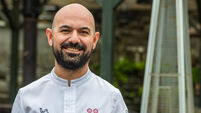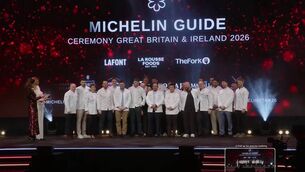Cafe Paradiso: Three decades of the legendary Leeside veggie restaurant

Denis Cotter, owner and executive chef of Paradiso in Cork
Becoming a vegetarian in the 1980s shaped Denis Cotter’s life. It introduced him to a world of food and cooking, leading him to open Paradisoin Cork, Ireland’s most renowned vegetarian restaurant. Earlier this month, Cotter launched his latest book , a thoughtful record of the evolution of an establishment that has concentrated on delicious, vegetable-focused food for the last 30 years.





